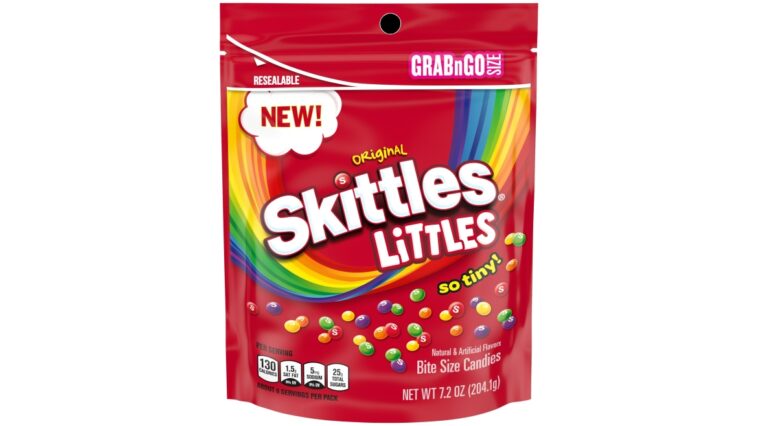Significant changes are underway in the world of confectionery manufacturing; Mars Inc., the maker of the Skittles candy, has ceased the use of titanium dioxide in its production. This shift follows an ongoing debate regarding the ingredient’s safety. Titanium dioxide, known for its role in enhancing the vibrancy of colors, the aesthetics of food, and notably, its imparting a glossy finish to candies, was completely phased out from Skittles manufacturing line as the calendar flipped to this year.
The reasons behind this move stem from a growing unease about potential health implications of titanium dioxide, characterized by its minute particles that have been suspected to amass within the human body and possibly inflict harm on DNA. The European Union, attentive to these risks, ruled out the use of this additive in 2022.
In the United States, the Department of Health and Human Services has also commenced a rigorous review of titanium dioxide usage, reflecting its escalating priority among health-conscious policymakers and stakeholders. This heightening apprehension around the compound is not a confined concern but spans across various human health advocacy groups.
In 2023, proactive stands against titanium dioxide were notably taken by organizations such as the Environmental Working Group alongside the Center for Food Safety. These groups lodged a formal request with the Food and Drug Administration, urging the revocation of titanium dioxide’s color additive status in food products.
While these efforts have yet to culminate in a decisive ban on titanium dioxide in the United States, Mars Inc. had anticipated such actions and declared its commitment to cease usage of the controversial additive as early as 2016. Sour Skittles, a variant of the candy, still bore the listing of titanium dioxide as an ingredient earlier this year.
At present, Mars Inc. is occupied in updating their digital platforms to accurately reflect changes in product formulation. While this reformulation is notable, consumers might still encounter products containing titanium dioxide on store shelves until existing stocks are completely depleted.
Despite the exclusion of titanium dioxide, it’s essential to note that the chewy Skittles candies continue to utilise synthetic colourants such as Red 40, Yellow 5, and Blue 1. These synthetic dyes are under scrutiny by health authorities as well.
In an announcement made in April, the Department of Health and Human Services together with the Food and Drug Administration expressed their intention to collaborate with food manufacturers to phase out synthetic dyes by the year 2026. Nonetheless, no formal agreement concerning this matter has yet been reached according to industry groups.
The conversation around titanium dioxide extends beyond Mars Inc., as several other food businesses are utilizing the compound in their products. These include giant corporations Mondelez International Inc. with their Sour Patch Kids Watermelon, Kraft Heinz Co. with their Lunchables Cookie Dunks, and JM Smucker Co. with their Donettes.
Apart from the food sector, this chemical compound is a prevalent ingredient in products falling within other industries – titanium dioxide is prevalent in sunscreen formulations and forms an integral component of white paints.
Responding to the situation, Mondelez International Inc. suggested directing any inquiries to the Consumer Brands Association, an organization representing the food industry. On the other hand, there’s been no comment from Kraft Heinz and JM Smucker.
The concern about titanium dioxide has made its way into the corridors of power. A recent report by the White House titled ‘Make America Healthy Again’ inclusively pinpoints titanium dioxide as an additive worth worrying about.
Heightening the sense of urgency around this compound, earlier in May, an announcement came from the Food and Drug Administration pertaining to expedited scrutiny of titanium dioxide within their existing review processes.
Thus, the exclusion of titanium dioxide from Skittles preparation marks a noteworthy shift by Mars Inc., in tune with the evolving global agenda against potentially harmful food additives. This move not only demonstrates the company’s attention towards the growing health consciousness but also perhaps indicates the direction in which the food manufacturing industry is progressing.
In addition to the attention titanium dioxide has been receiving, Mars Inc.’s decision places an additional focus on the broader conversation around food additives and their potential impact on human health. From regulatory scrutiny to moves by food corporations, these changes reflect a shift towards increased consideration for the safety of consumers, promoting healthier ingredient choices and food production practices.

